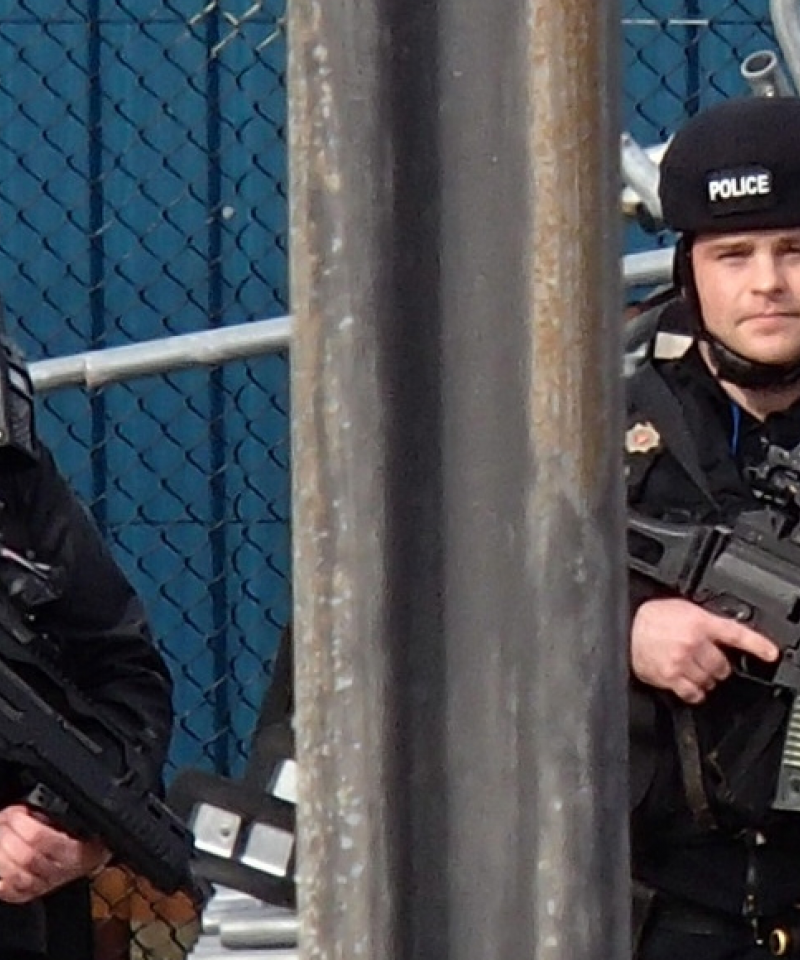The Civil Nuclear Constabulary: Structure and Concerns

As a police force, the Civil Nuclear Constabulary (CNC) is unique in the way that it is organised and operates. It describes itself as an armed force.
Officers are known as ‘griffins’ because a griffin icon forms part of their logo.
The CNC was established in 2005, replacing the Atomic Energy Authority Constabulary which had been established in 1955.
It is run by the Civil Nuclear Police Authority (CNPA) and is a branch of the Department for Business, Energy and Industrial Strategy with a board which consists of representatives from the nukiller industry.
One member of the Ministry of Defence police who has been on secondment to the CNC described it as extremely well resourced.
It has over 1,100 armed police whose job is to guard Britain’s atomic reactors.
A £39m firearms training centre is currently being built next to the Sellafield nukiller waste plant in Cumbria.
In addition to this, there is the CNC Strategic Escort Group. This is a specialist team who provide armed protection for high security nuclear cargo during transportation in the UK and internationally.
Officers are armed with high powered guns and tasers. They patrol around nuclear plants with their jurisdiction stretching three miles beyond the military fences around nuclear installations. Visitors to Cumbria are usually unaware that the CNC have power to stop and search people innocently walking in the countryside within three miles of Sellafield. A German reporter covering the Copeland by-election was recently stopped on a public footpath by two armed CNC officers and asked for his name and what he was doing. When he asked why the CNC needed to know, the officers replied “because of the world situation”.
Through the CNC, the CNPA is authorised to carry out covert intelligence operations against anti-nuclear protesters. In July 2009, Judge Christopher Rose said that the CNC’s “approach to covert activity is conspicuously professional”. He found that the system for storing the intelligence gained from informers was “working well” and that “senior officers regard covert surveillance as a long-term requirement”.
All of this is alarming enough in itself but questions have also been raised as to whether the CNC can be properly considered to be a police organisation given anomalies regarding accountability and governance.
The nuclear industry was reported as having paid £57m in 2009 alone to finance the CNC. Around one third of this was paid by the private consortium managing the Sellafield nuclear site.
The body that regulates the CNC is also funded by the nuclear industry. So, this is an armed police force that is accountable not to the law of the land but to an industry desperate to build new nuclear reactors in the UK. New nuclear installations will mean more CNC and the further militarisation of what are largely rural areas.
Add new comment